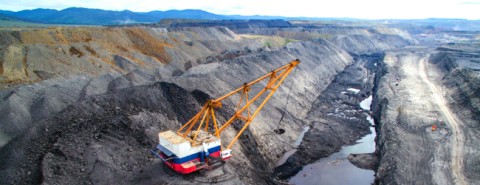Conservatives for climate action

Donald Trump’s speech at the Republican National Convention was calibrated to stoke fear, but its 82 minutes of doom and gloom failed to mention the singular threat the world faces: climate change. The official RNC platform, for all its departures from the nominee’s positions, echoes the low priority he places on climate action.
It hasn’t always been this way. Before Trump the candidate dismissed climate change as a “hoax,” a “con job,” and “bullshit,” Trump the businessman signed a 2009 letter calling for aggressive action to avoid “catastrophic and irreversible consequences for humanity and our planet.” Party leaders once took climate change more seriously, too. A recent ad campaign gathers footage of the last several Republican presidents and nominees in which each states plainly that the climate crisis is serious and real.
Read our latest issue or browse back issues.
The organization behind the ad campaign, Partnership for Responsible Growth, is one of several conservative groups that object to the GOP’s refusal even to acknowledge the problem anymore. These conservatives are right to dissent from the party that purports to represent them. Climate action is critical—and there are steps that could be taken that are in line with the conservatism of free markets and economic liberty.
Writing in Grist, Ben Adler highlights several such policy changes. Two industries with huge carbon footprints—industrial agriculture and fossil fuel production—enjoy dominant positions in the U.S. economy. This dominance isn’t simply the result of success in a free market. Congress heavily subsidizes both industries—agribusiness through the farm bill, the energy companies through tax breaks. When the government picks winners, principled conservatives object: these subsidies should be repealed and the playing field leveled.
Similarly, the federal government favors homeowners over renters and large mortgages over small ones. It does this via another tax expenditure, the home mortgage interest tax deduction. This policy encourages the construction of new and bigger houses—in a word, sprawl, with its sprawling carbon footprint. Here too environmental harm is enabled by economic favoritism, to which conservatives have strong objections.
Even a carbon tax fits into pro-market thinking. Although it’s a tax, it’s also a soft-touch correction to a market failure. The fossil fuel industry thrives by pocketing gains while pushing costs—environmental destruction—to others. Adler calls this an “implicit subsidy”: the government pads the industry’s bottom line by allowing it to damage property it doesn’t own. Since conservatives emphasize property rights as well as markets, a carbon tax would move the energy market closer to how conservatives believe it should work in the first place.
While numerous conservatives already support these ideas and others, the GOP’s priorities are elsewhere. The same has often been true of the Democrats. In recent years, however, activists have pushed Democratic leaders toward climate action. Perhaps they’ll muster the strength to build a coalition for an agenda that’s far from radical: a conservative, market-oriented effort to avoid global catastrophe.





